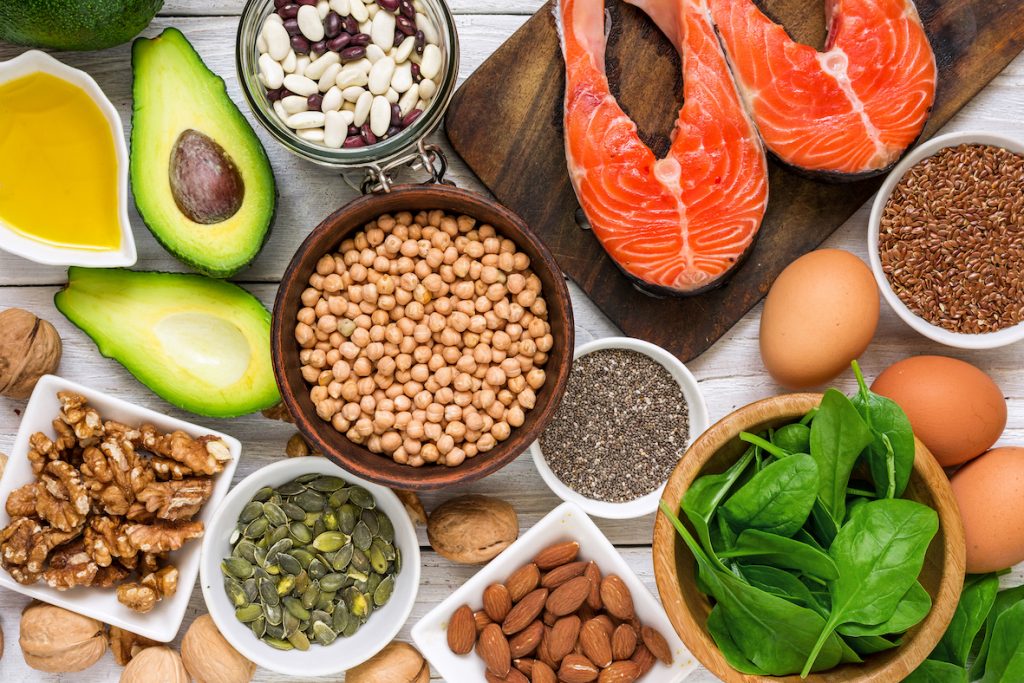An inside job
Featured Products Promotional FeaturesPosted by: Dental Design 12th September 2021

As soon as the sun is shining, everyone seems to have a natural urge to eat better. Whether wanting to cut down on sugars or eliminate certain foods and drinks, it’s a continual summer theme that junk foods are out and better alternatives are in. While being healthier for the body, some ‘healthy’ foods and drinks can have a negative impact on the teeth and gums. It’s important to remind patients of what they can do to avoid developing conditions like tooth decay through diet.
Healthy pitfalls
When a food or drink is labelled as healthy, it’s very common for individuals to overlook elements of it that have the potential to be harmful to their mouths, such as the level of acidity.
As you will know, when an individual consumes any acidic substance, it can lead to the wear of enamel, resulting in conditions such as tooth erosion.[i] Foods such as fruits, eggs and even some vegetables, such as cucumber and white cabbage, are key examples.[ii] Although they contain valuable minerals to improve a person’s health, they have the potential to be very damaging to the teeth.
Given that patients are unlikely to view nourishing options like fruits as harmful, it’s vital they are well informed of how to protect their oral health. The more patients understand, the better choices they will make on their own. Consider enlightening patients about foods that can combat high acidity levels, such as cheese. The combination of drinking red wine while eating cheese is a prime example – red wine is highly acidic, whereas chewing cheese stimulates salivary flow which serves as a protective alkaline barrier around the teeth, helping to fight off decay.[iii] [iv]
Active lows
It’s no secret that healthy eating and exercise go hand in hand on more than one occasion. No matter how often a patient is active, they need to be aware of the potential drawbacks that fitness-related products can have to their oral hygiene, for instance, sports drinks.
Although varying from brand to brand, the majority of sports drinks promote their prominence to health through the inclusion of ingredients such as sodium and potassium, two substances the body loses when exercising. However, these drinks still contain high levels of sugar.
It’s well known that sugar in food and drink can be detrimental to all types of health. As you will know in terms of oral hygiene, it isn’t specifically the sugar that is damaging, but how it reacts with the acid that is produced by the natural bacteria within the plaque.[v] Due to this, if an individual has a high intake of sugar, conditions such as tooth decay at more likely to occur.[vi]
 A helping hand
A helping hand
Even though cases have decreased over the years, it’s estimated that 1 in 3 adults suffer from dental cavities and 1 in 4 children suffer from some form of tooth decay.v Studies have also shown that there is a significant correlation between tooth erosion and diet, particularly acidic foods and carbonated drinks.[vii] Following this, it has never been more important for patients of all ages to be instructed on how to take better care of their oral hygiene.
Helping patients select the best tools available to help them is crucial. A good example of this is the Waterpik® Water Flosser. Available in a vast range of models, it is an easy to use and highly effective interdental aid that is clinically proven to improve and maintain oral health. It even removes 99.9% of plaque from treated areas in just 3 seconds and has over 80 studies supporting its effectiveness.[viii]
No matter the time of year or what your patients have a craving for, it’s vital they remain educated and understand how dental erosion and tooth decay can be prevented with smart dietary choices.
For more information on Waterpik® products please visit www.waterpik.co.uk. Waterpik® products are available from Amazon, Costco UK, Argos, Boots, Superdrug and Tesco online and in stores across the UK and Ireland.
Book a free Waterpik® professional Lunch and Learn for 1 hour of verifiable CPD and a free Waterpik® Water Flosser – available either face to face or as a webinar – at www.waterpik.co.uk/professional/lunch-learn/
[i] Delta Dental. (2018). Stop acid erosion. Available: https://www.deltadentalins.com/oral_health/acid_wear.html. Last accessed 3rd June 2021.
[ii] Total Wellness. (2017). Acid & Alkaline Food Chart. Available: https://total-wellness.co.uk/wp-content/uploads/Alkalising-Food-Chart.pdf. Last accessed 3rd June 2021.
[iii] Madison R. Hayden. (2015). The Effect of Cheese on the pH Levels in the Oral Cavity. TopSCHOLAR. 1 (1), 4-22.
[iv] DentistryIQ Editors. (2013). Cheese may prevent cavities. Available: https://www.dentistryiq.com/dental-hygiene/clinical-hygiene/article/16354116/cheese-may-prevent-cavities. Last accessed 2nd June 2021.
[v] Bupa Dental. (2018). What does sugar do to your teeth?. Available: https://www.bupadental.com.au/blog/article/what-does-sugar-do-to-your-teeth. Last accessed 1st June 2021.
[vi] Action on Sugar. (2021). Sugars and tooth decay. Available: http://www.actiononsugar.org/sugar-and-health/sugars-and-tooth-decay/. Last accessed 1st June 2021.
[vii] M.M.S. Salasa. G.G. Nascimentoa F. Vargas-Ferreirab S.B.C. Tarquinioa M.C.D.N.J.M. HuysmanscF.F.Demarco. (2015). Diet influenced tooth erosion prevalence in children and adolescents: Results of a meta-analysis and meta-regression. Journal of Dentistry. 43 (8), 1-3.
[viii] A Gorur, DM Lyle, C Schaudinn, JW Costerton. Compend Contin Ed Dent. (2009). Waterpik® Water Flosser Removes 99.9% of Plaque Biofilm After 3-Second Treatment Biofilm Removal with a Dental Water Jet. Waterpik Uk Clinical Research. 30 (1), 1-6.
No Comments
No comments yet.
Sorry, the comment form is closed at this time.



